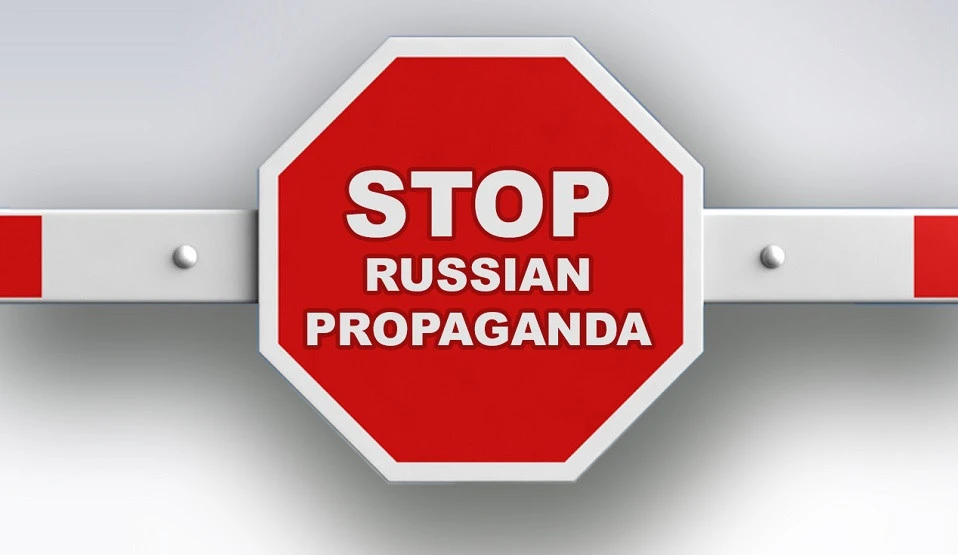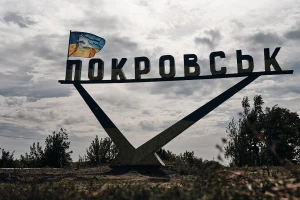
Former French officers fuel Moscow's propaganda
In France, there is a group of retired officers who are actively involved with anti-European and anti-Atlantic political leaders promoting the Kremlin's agenda in Europe
Former French military personnel, according to Patrick Chevallereau, a French vice-admiral, senior fellow, and administrator of the Open Diplomacy Institute, are promoting the pro-Russian narratives.
Officers spread pro-Moscow views – Vice Admiral Chevallereau
General Bertrand de la Chesnais, former French Army number two, the director of candidate Zemmour's presidential campaign, and others who worked with Nicolas Dupont-Aignan are among the former French officers who embrace pro-Russia narratives. Both ex-candidates have a history of supporting pro-Russian narratives, particularly when it comes to the Russia-Ukraine war.
The case of Jean-Michel Cadenas, an ex-gendarmerie officer and leader of Le Pen's National Rally in Mayenne, is more representative of direct support for Russia. He's very active on social media, spreading anti-Western propaganda. Since the beginning of the Russian invasion, this former military officer has dedicated a significant portion of his online activities to criticizing Ukraine and condemning Western assistance to Kyiv.
“Since the beginning of Russia’s military aggression against Ukraine and the daily reality of its barbarity, everyone has witnessed a phenomenon that should concern all those who care about the defense of our security interests and the stability of the European continent: on social media frequently, and on television occasionally, former military officials do not hesitate to relativize or reverse the burden of responsibility that is at the root of the worst conflict in European history.” “These former soldiers, to varying degrees, support the Kremlin’s narrative,” Patrick Chevallereau said.
Pro-Russian professors in military academies
Worryingly, higher military education hasn't been spared Moscow's damaging disinformation campaign. Anti-Western lecturers influence future generations of officers. Older generations have an impact on military high schools.
Colonel Caroline Galactéros, director of the anti-Atlantic institute Géopragma and close to reserve officer associations, replicated MEP Thierry Mariani's Franco-Russian Dialogue (known for pro-Russia rhetoric) and served as candidate Éric Zemmour's geopolitical advisor during the presidential campaign.
Ex-officers, both pro-Russian and anti-Western, speak out in pro-Russian media
She had worked as a seminar director at General Vincent Desportes' École de Guerre. The latter, elevated to high-level geostrategic commentary, is unafraid to compromise on pro-Russian and anti-Atlantist platforms like Omerta, Elucid, and the Franco-Russian Dialogue. Aymeric Chauprade, a former international affairs adviser to Marine Le Pen, was the Collège Interarmées de Défense's course director until 2009. His geopolitical rhetoric matches the Kremlin's.
In addition to Géopragma, we can consider the Centre Français de Recherche sur le Renseignement (CF2R), which is led by Éric Dénecé. This office is extremely comfortable with Kremlin narratives. However, according to the think tank's administration, three general officers in the second section or retired are now members of its strategic committee.
This 'military nebula' of Russophilia and anti-Atlanticism existed before Russia launched a war on Ukraine on February 24, 2022. The media's and social media's omnipresence of the war sparked by Moscow has only brought it to light. Unfortunately, it is simply the physical manifestation of a more widespread and deep-seated mental muddle than one might expect, even if it only affects a small percentage of the military establishment.
According to Mr Chevallereau, several factors, the majority of which are ideological or political in nature, contribute to the blindness of some former French military soldiers. Some supporters of a 'sovereignist' France are opposed to the idea of a strong and united Europe.
Other former military men who represent traditionalist France see Orthodox Russia incorrectly, ignoring the fact that the right religion is used by the special services (FSB) as a tool to control the population, a kind of civilizational ally in the face of Muslim countries.
While religion should not be an issue because Russia is an ally of the Islamic Republic of Iran, Muslim Turkey is a NATO member, and Europe is home to people of various religions and descent.
These points are a priority target of Russian propaganda because they represent the center of gravity of Western democracies' security.
The age of Russia's hybrid warfare
Despite the fact that this is a minority issue, it is no less concerning because these beliefs or sensitivities, whether expressed publicly or quietly, do not spare any of the forces. In its disinformation war against European democracy, Moscow frequently employs figures to support distorted information spread by Russian propaganda.
According to Patrick Chevallereau, in such an environment, it appears critical to address what appears to be an aspect of internal weakness within an institution on the front lines of the country's defense.
The EU is forced to respond to disinformation campaigns launched by Russia and China
According to the European External Action Service's (EEAS) 2022 report on disinformation and fact manipulation in the global information space, the level of threat posed by Russian (and Russia-friendly) propaganda has reached the point where the EU must prepare to respond.
Josep Borrell, the EU's top diplomat, announced plans to create an innovative platform to counter Russian and Chinese disinformation campaigns. Because EU institutions are being targeted by Russian disinformation, the EU has been forced to implement new measures in this regard.
Moscow's disinformation campaign specifically targets France. Not only in Europe, but also in the Ukraine war and Africa, where the Kremlin has geopolitical and commercial interests. According to Emmanuel Macron, Russia is allegedly using disinformation campaigns to advance its 'predatory project' in Africa, where France has seen military failures.
In an interview with TV5 Monde on the sidelines of a Francophone summit in Tunisia, French President Emmanuel Macron claimed there was a “predatory initiative” spreading false information into African countries, which was “a political project supported by Russia, occasionally other states.”
How do Russian disinformation campaigns work?
Typically, Kremlin disinformation campaigns are managed centrally and distributed through owned or affiliated media networks and social media accounts. The Russian military unit 54777, also known as the 72nd Special Service Center or the Foreign Information and Communication Service of the Main Directorate of the General Staff, is a psychological operations unit that plays an important role in military intelligence.
The stories developed by this military unit may have an impact on many media narratives and topics that fuel Kremlin-backed narratives. Because Russian state media, hundreds of foreign so-called independent news websites, various YouTube channels, and thousands of social media profiles all distribute identical narratives, viewers may conclude that the entire effort is the work of a single group.
As an example, a patriotic former military officer in France may spread distorted news on social media, masterminded by Russian acting officers serving in the intelligence and psychological operations unit.
- News












































